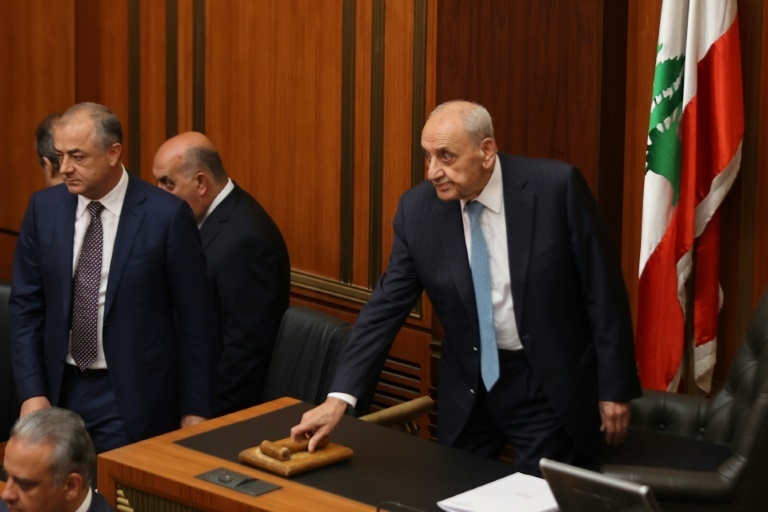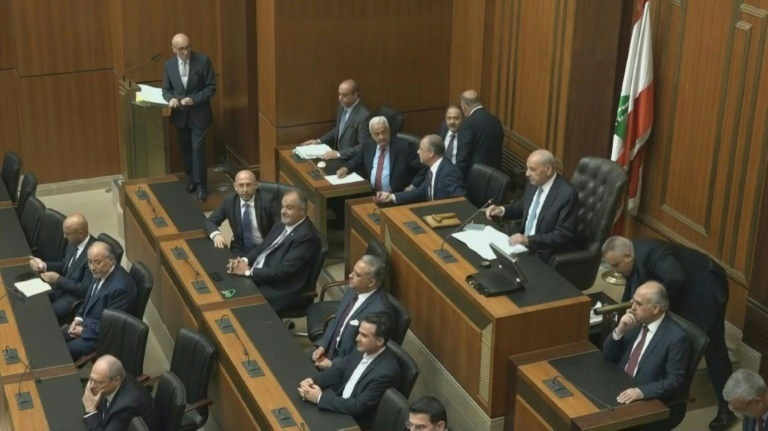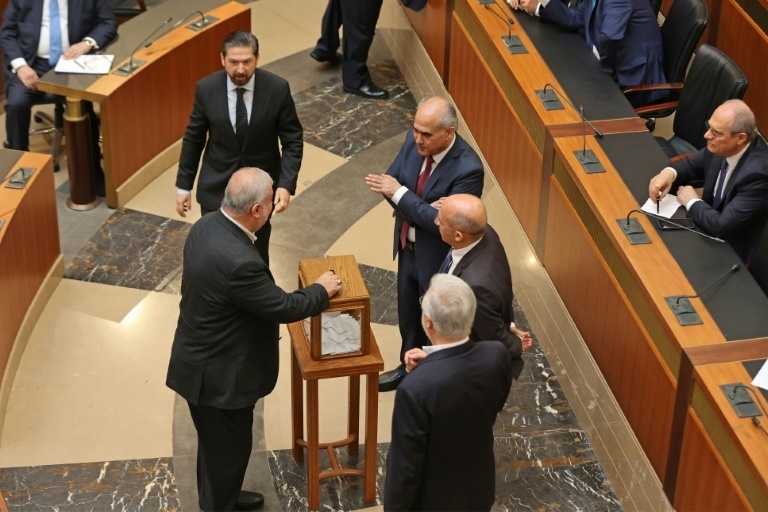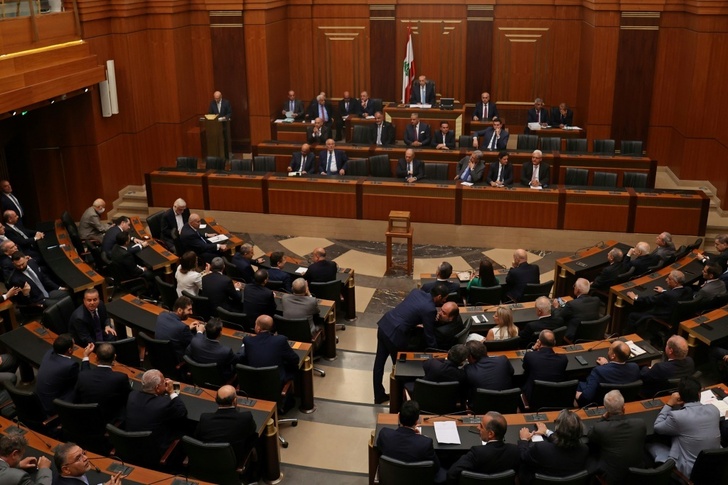Lawmakers in crisis-hit Lebanon on Wednesday failed for a 12th time to elect a new president, with bitter divisions between the powerful Iran-backed Hezbollah and its opponents marring the vote.
Lebanon has been without a head of state for more than seven months, and the previous attempt to elect a president was held on January 19.
The vote for the presidency, reserved for a Maronite Christian under Lebanon's delicate sectarian power-sharing system, pitted the Hezbollah-backed Sleiman Frangieh against financial official Jihad Azour, who has mainly been endorsed by Christian and independent legislators.
But neither had enough support to get across the line, with Azour garnering 59 votes and Frangieh 51 in the 128-seat parliament.
All lawmakers showed up for the election, but many left the chamber after placing their ballots in the box and quorum was lost before a second round of voting -- where the winner only requires 65 ballots -- was able to go ahead.

"We don't impose (a candidate) on others, and we don't want them to impose (one) on us," Fadlallah told reporters before Wednesday's session.
Analysts said the vote risked further entrenching a political stalemate, dimming hopes of saving the economy after three years of meltdown.
"At this stage, the most likely scenario is a prolonged vacuum," analyst Karim Bitar said.
- 'Third-man solution'? -
The international community has urged politicians to elect a consensus presidential candidate who can help the country enact reforms required to unlock billions of dollars in loans from abroad.

In past sessions, Hezbollah and its allies repeatedly posted spoilt ballots to disrupt the vote.
They adopted a similar tactic in the last presidential election, a move that left Lebanon without a president for more than two years, until Michel Aoun's 2016 win.
Pro-Hezbollah daily Al-Akhbar's front page on Wednesday featured just one word: vacuum.
By convention, the premiership is reserved for a Sunni Muslim and the post of parliament speaker goes to a Shiite Muslim.
Frangieh, a former lawmaker and minister who is a friend of Syrian President Bashar al-Assad, hails from a storied family dynasty, like many of Lebanon's prominent political figures.
On Sunday, he promised to be "the president of all Lebanese" despite his polarising alliances.
Azour was finance minister from 2005 to 2008 and has stepped aside from his role as the director of the Middle East and Central Asia department at the International Monetary Fund in view of the presidential contest.
On Monday he said he wanted to "contribute to a solution" not a crisis, as he announced his bid for the post.
Azour said he was "not defying anyone", after Hezbollah described him as the "defiance and confrontation candidate".

A stalemate could pave the way for protracted negotiations "that would ultimately reach a third-man solution", he told AFP before the ballot.
The United States and France on Tuesday renewed calls for Lebanese lawmakers to cooperate and elect a new president.
French foreign ministry spokeswoman Anne-Claire Legendre urged MPs to "take this date seriously" and "not to waste another opportunity".
lar/lg/dv
© Agence France-Presse
Your content is great. However, if any of the content contained herein violates any rights of yours, including those of copyright, please contact us immediately by e-mail at media[@]kissrpr.com.
Source: Story.KISSPR.com

